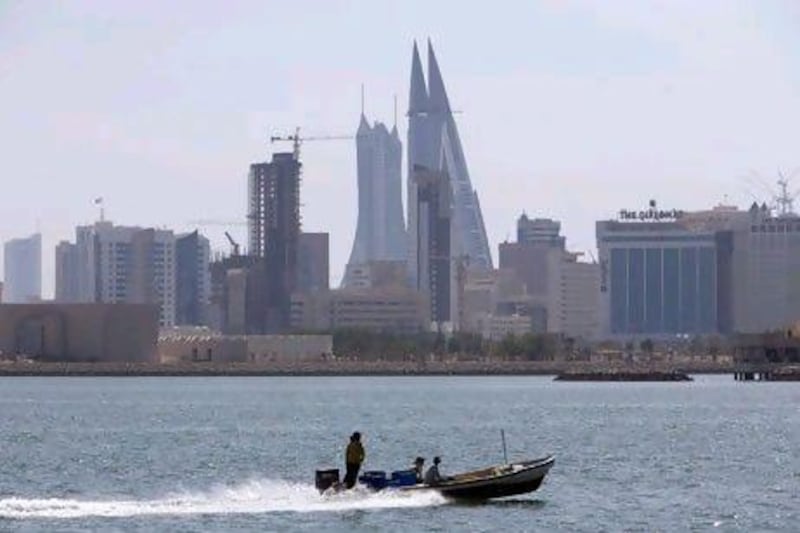MANAMA // At least 17 of the 53 floors of offices at the Bahrain Financial Harbour (BFH) are empty.
Echoes of lonely footsteps and the hushed murmurs of security guards are about the only sounds resonating in the marble-floored centre. Armoured military vehicles are parked outside the towers in a sign that normality has still not returned after weeks of protests.
The BFH is also the new headquarters of the Bahrain Stock Exchange, one of just 12 occupants at one of the twin towers, although the exchange had to move to a backup site for several days when access to the centre was blocked.
Trading has now resumed at the BFH, but yesterday the display screens were flashing stock prices for an empty trading floor.
Abdul Saleem, a representative of the financial centre's leasing department, said at least 17 floors were empty.
"We have small and large spaces available that range from 200 to 600 square metres to whole office floors that spread from 700 square metres to 1,800 square metres," he said.
The financial centre has struggled to fill more than 240,000 sq metres of office space in the imposing twin towers near the capital, Manama.
The towers are part of a US$3 billion (Dh11.01bn) mixed-use development that has suffered further from an exodus of workers as most financial companies with offices in the kingdom evacuate staff abroad and reduce operations. It is not known when they will return.
"From the very first day it was built, it was trying to model itself on the Dubai International Financial Centre, but it hasn't been a success," said Anthony Mallis, the chief executive of Securities & Investment Company, which is the largest broker on the Bahraini exchange and runs an investment bank in the kingdom.
"It was half empty before [the political unrest], so it's nothing new," he said, adding that an exodus of staff was not helping the situation.
Bahrain established itself as the Gulf's financial hub in the 1980s, when banks catering to the region's wealthy left Beirut because of the Lebanese civil war.
Its financial sector accounts for about a quarter of GDP and is an important player in the government's effort to create jobs and diversify the economy away from oil.
Along with Kuala Lumpur, Manama has established itself as a major centre in the $1 trillion Islamic finance industry.





